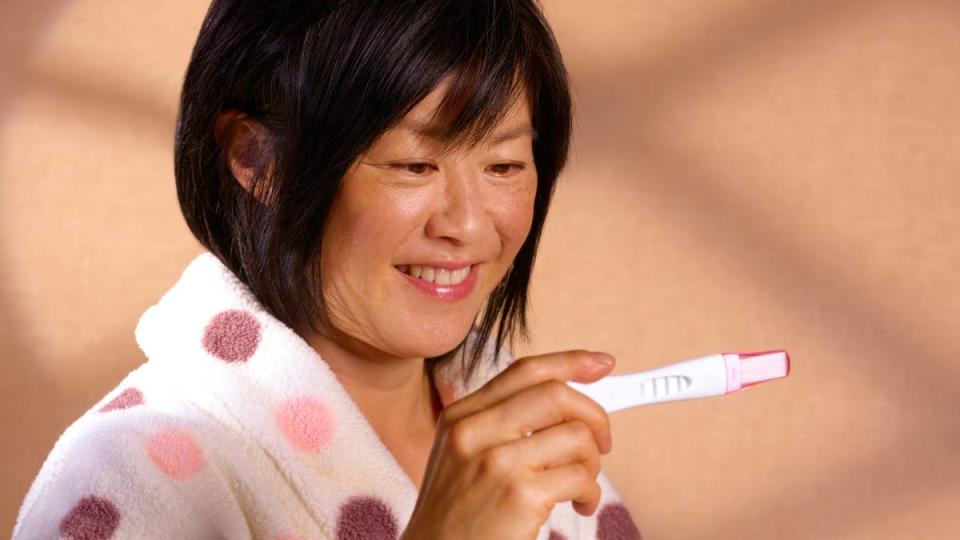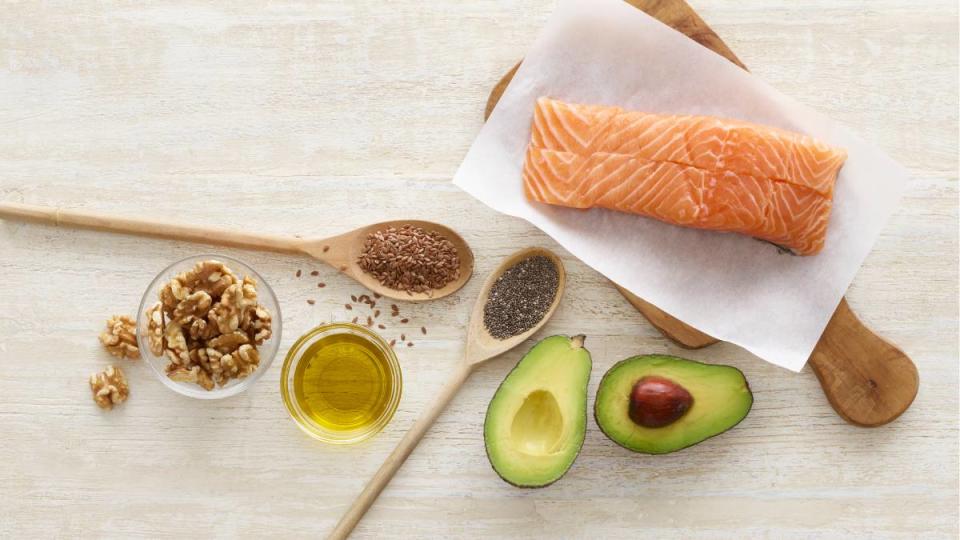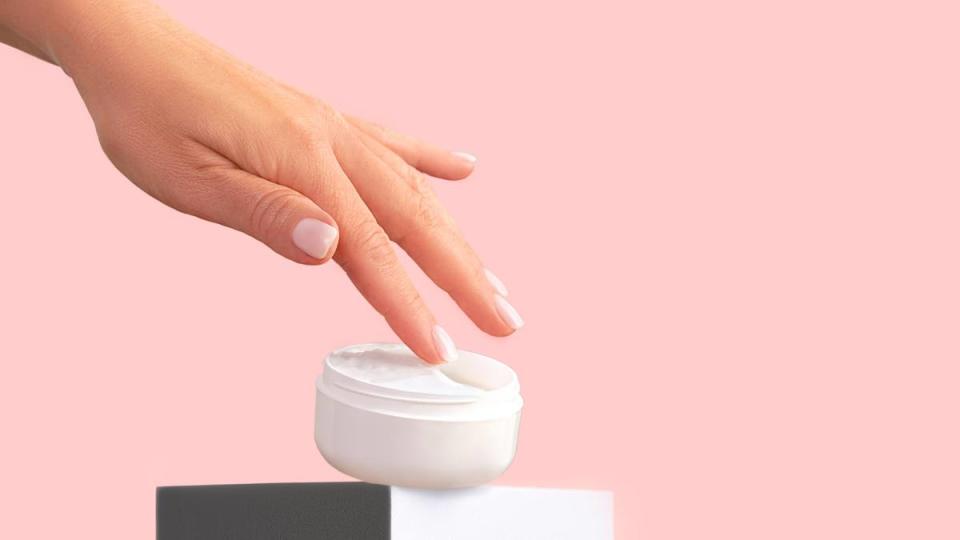You *Don’t* Have To Suffer Through Menopause: New Home Test Kits and Doctors’ Best Self-Care Tips Can Help
It’s a rite of passage that women go through. Yet for many, the menopause transition can feel confusing and isolating. To blame? Lack of menopause training means many doctors aren’t prepared to advocate for their patients. And since physician visits have become more rushed, there's little time to adequately discuss health concerns like menopause self-care. What's more, women may be leery of talking openly about hot flashes, brain fog, tiredness and other menopausal symptoms that could label them as “old”.
Yet the data is staggering: 47 million women begin the menopause transition every year, say Johns Hopkins University scientists. By the year 2030, there will be 1.2 billion women globally who are either menopausal or postmenopausal. A menopause bill was even introduced recently in Congress. If approved, the WARM (We’re Addressing the Realities of Menopause) Act would create a national menopause public awareness campaign that aims for improvements in research and educational initiatives on the subject.
But what about women seeking menopause self-care strategies now? We asked doctors — plus actress Gabrielle Union, who advocates for menopause awareness — to break down the challenges women face, how menopause home test kits can help and the best ways to ease symptoms naturally.
Why menopause can feel isolating
More awareness is definitely needed, says Heather Hirsch, MD, board-certified in internal medicine. When she decided to complete advanced fellowship training in women’s health at the Cleveland Clinic to better care for her patients, she says she realized that the training she’d received in medical school on midlife and menopause was lacking and mostly outdated. “It’s such an important conversation, because menopause truly is a universal process. All women will go through these stages,” she says. Yet every day, she hears that women feel like they’re alone on an island because they don’t understand that the symptoms they’re having are hormonal.
That’s why she advocates for self-testing and believes that DIY kits like the new test created by Clearblue (a company known for its pregnancy and ovulation tests) called the Menopause Stage Indicator are a good option for women. (Buy it at Walgreens, $29.99) The home test measures levels of follicle-stimulating hormone (FSH), which helps regulate ovulation and the menstrual cycle. Rising levels can be an indication that a woman is approaching or in menopause.

How the menopause home test works
The Clearblue kit includes five test sticks that you urinate over every other day for 10-days, explains Fiona Clancy, PhD, senior director of Research & Development at SPD Development Company Ltd, the company that makes the Clearblue test. If your FSH levels for the day are in a range considered “high,” the test will show a positive symbol. If your FSH levels are low, the test result will be negative. After downloading an app and setting up your profile (you'll provide information about your age, menstrual cycle and any symptoms you may be experiencing), you’ll record the positive or negative FSH result for each test day.
At the end of the testing period, the app will use the information to estimate the stage of menopause you are in: Pre-menopause (meaning you have yet to begin your journey), early perimenopause (when periods can start to become irregular, changing in flow and length), late perimenopause (when women begin missing periods and may have heavy bleeding when they do have them) and postmenopause (when you no longer have periods).
The beauty of self-testing, says Clancy, is that the information it provides can help you start a dialogue with you doctor about where you are in your menopause journey. This also gives you a chance to discuss menopause self-care strategies that can ease symptoms. It’s an empowerment tool, she asserts, that helps “turn up” the conversation when it comes to menopause.
Related: MDs Reveal the Best Natural Ways to Ease the Most Bothersome Menopause Symptoms
How DIY tests can help: Gabrielle Union shares her story

Actress Gabrielle Union (Being Mary Jane, Think Like a Man, She’s All That and Bring it On) says she began her menopause transition earlier than most. She was just 37 when testing through her doctor revealed her FSH levels were high, though she says her symptoms didn’t begin in earnest until her early- to mid-40s. It began with full-body night sweats, waking up “like someone had poured a gallon of water all over me and the bed,” she says.
Next, she noticed hair loss, with “dime-sized plugs” missing from her scalp. Weight gain seemed to happen overnight. “No one else was talking about it,” she says. “It was so shrouded in secrecy and shame, and it was just very taboo. It was almost like if I talk about it, then I’m going to stop being a woman. I’m going to stop being a woman anyone cares about.”
Yet these symptoms are extremely common, with 75% of women experiencing them, says Dr. Hirsch, whose telehealth practice focuses on menopausal hormone therapy, perimenopause, breast cancer survivorship and other conditions common to women in midlife. Changes in mental state and health can also occur. “The anxiety didn’t feel the same,” Union says. “It felt like terror, like a full-body terror.” Then, sadness hit her. “I’ve never really had depression, but it was a sadness…where I just wanted to play Words with Friends, and that’s all I had for the day.”
Options for menopause home testing
The new Clearblue test isn’t the only option for at-home menopause testing, although it is the only one to provide five FSH tests. That may help make it more accurate, since FSH levels can vary dramatically from day to day. Most DIY tests measure levels of one or more reproductive hormones, including FSH, estradiol and progesterone. Levels of all of these hormones change as you get closer to menopause, so they can help doctors determine whether a woman is in menopause or close to it, says integrative gynecologist Felice Gersh, MD, medical director of Integrative Medical Group of Irvine.
The pricier tests, which measure multiple hormones, require you to send your test samples to a lab for evaluation. Some use a finger prick to gather blood, while others collect saliva or urine. The less-expensive kits often look only at FSH and do so via urine tests, in which you pee on a wand, much like a pregnancy test.
More ways to track your menopause stage
“I understand how knowing where you are in the menopause transition can be helpful,” Dr. Gersh says. “But FSH levels, which tend to be higher as you get closer to menopause, can be unstable for a long time before a woman has her last period. And many women think they can no longer get pregnant when FSH is somewhat high, when in fact, they still have viable eggs and can conceive — and do!”
Dr. Gersh believes a better menopause gauge is to keep track of the time between periods. Late perimenopause, or going more than 60 days without a period, is a good indicator that menopause may be near.

Since all test kits come with the caveat that only a healthcare provider can confirm your menopause stage, you may be better off by keeping track of your cycle and symptoms over the course of three to six months and then sharing that information with your gynecologist, adds Dr. Gersh. “Together, you can get an accurate idea of where you are in the transition — and make a plan for managing your symptoms.”
Menopause self-care strategies
No matter where you are in your menopause journey, symptoms such as hot flashes, night sweats, irritability, vaginal dryness and more can be downright draining. “Doctors often tell women they can’t be treated until they’re done with the transition, which is crazy,” says Suzanne Gilberg-Lenz, MD, author of Menopause Bootcamp. She adds: “It’s often at perimenopause when women need the most care.”
For Union, eating an anti-inflammatory diet has kept the vast majority of her symptoms under control, including reducing hair loss. Journaling and keeping track of her feelings was also key, she adds. Here, our top expert-backed menopause self-care strategies:
1. For hot flashes/night sweats, eat edamame
Eating ? cup of soybeans daily slashes hot flashes by 88%, found a study in Menopause. “Soy contains isoflavones, plant estrogens that reduce hot flashes,” says Dr. Gersh. She adds that it’s important to look for organic or non-genetically modified (non-GMO) soy, and notes that research has shown it’s safe for women with breast cancer.
“I also sprinkle smoothies with 2 Tbs. of flaxseeds, whose lignans decrease menopausal symptoms,” she notes. Bonus: The omega-3s in soy and flaxseed have been shown to help reduce the irritability and depression associated with menopause, too, making it a smart bet for menopause self-care. (Click through to see how maca powder can help with menopausal hot flashes, too.)

2. For brain blips, try a double-duty supplement
Brain fog is a common symptom of menopause. While declining estrogen can impede focus, the biggest culprit behind memory blips is lack of sleep, says ob/gyn Mary Jane Minkin, MD, clinical professor of obstetrics, gynecology and reproductive sciences at Yale University.
“When night sweats disrupt sleep, our memory is badly impacted,” she asserts. “A supplement that helps you sleep will also alleviate brain fog because the two are closely connected.” Her natural Rx: black cohosh. “One possible explanation for how it works is that it acts like a natural selective serotonin reuptake inhibitor, or SSRI, to help you sleep,” she says. And when you’re able to drift off, your brain will consolidate memories and sharpen focus. One option Dr. Minkin likes: Nature’s Way Remifemin (Buy on Amazon, $25).
Related: “Perimenopause Made Me Foggy and Tired — Until I Found This Natural Cure!”
3. For mood swings, enjoy more omega-3s
The risk of developing depressive symptoms rises by 300% in menopause. Plus, women in the menopause transition are more than twice as likely to be diagnosed with depression, even if they had no prior history, reveals a study in Australasian Psychiatry.
But Harvard scientists say omega-3s, derived from foods such as fish, seeds and nuts, can help with menopause self-care. In their study, 70% of peri- and postmenopausal women experiencing symptoms of depression who took omega-3s for eight weeks reported improvement on measures of depression, while 45% eliminated symptoms entirely.
“Omega-3s help form cell membranes and may work by allowing mood-boosting serotonin to enter cells more easily,” says ob/gyn Laura Corio, MD, author of The Change Before the Change. The study-backed dose: 2,000 mg a day. One to try: Natrol Omega-3 Fish Oil 1,000 mg (Buy from iHerb, $10.99). (Click through to see more ways to ease menopause irritability.)

4. For vaginal dryness, use an inexpensive moisturizer
Treating vaginal dryness with a prescription estrogen is effective, but can be pricey. A smart menopause self-care alternative: an over-the-counter vaginal moisturizer, says Dr. Minkin. “There’s a big difference between a lubricant, which you use only at the time of sex, and a moisturizer, which should be used regularly, two to three times a week,” she says. “A moisturizer draws fluid into the vaginal wall for long-term relief.”
One she likes: Replens Long-Lasting Vaginal Moisturizer (Buy at Walmart, $12.98). Indeed, vaginal moisturizers help reduce physical and psychological discomfort, as vaginal dryness is a top source of menopause-induced depression.

More ways to relieve menopausal health hassles:
Sweet Potatoes Help Tame Menopausal Hot Flashes, Mood Swings & Vaginal Dryness
If You Suffer From Urinary Leaks, Constipation or Painful Sex, You Could Have This Pelvic Issue
The 9 Best Foods That Fight Hot Flashes, According to MDs — No Medication Required
This content is not a substitute for professional medical advice or diagnosis. Always consult your physician before pursuing any treatment plan.
First For Women aims to feature only the best products and services. We update when possible, but deals expire and prices can change. If you buy something via one of our links, we may earn a commission. Questions? Reach us at [email protected]
